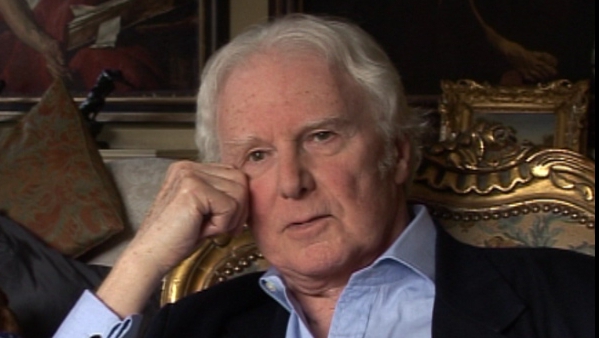NEXT STORY

Dealing with life in the army
RELATED STORIES

NEXT STORY

Dealing with life in the army
RELATED STORIES


|
Views | Duration | |
|---|---|---|---|
| 31. Art is my addiction | 450 | 02:00 | |
| 32. Why Oxford was not for me | 353 | 03:51 | |
| 33. Too young for The Courtauld | 238 | 03:48 | |
| 34. Intellectual stimulation during my student days | 251 | 03:50 | |
| 35. The best way to view works of art | 294 | 04:34 | |
| 36. Travelling after the war was a huge adventure | 246 | 02:19 | |
| 37. Humiliation during National Service | 300 | 03:45 | |
| 38. Dealing with life in the army | 254 | 04:01 | |
| 39. Valuable lessons learned in the army | 241 | 03:12 | |
| 40. 'Any fool can be uncomfortable' | 312 | 02:37 |


Well, national service was, in my day, for two years. Two full years. And I think I went down to Aldershot, which was a kind of mustering station, on the 7th of September, 1952. I’d taken the precaution of going to have my hair cut before we went and so it was fairly short. I’d taken the precaution of not carrying my violin with me. My stepfather was quite certain that would be a terrible mistake. So I took his advice.
And got out of the train at Aldershot with a lot of other boys, and we were gathered outside the railway station and bundled into trucks. And the bullying began, there and then. You know, everything had to be done in a hurry. Everything had to be done at once. And I don’t suppose any of us had ever clambered into the back of a… unsupported, into the back of a three-tonne truck, but that is what we were expected to do. And the only thing that could help you was a rope which you had to grab and haul yourself up, but it meant that you… you know... and your very first day there, you barked your shins and your knees and everything was hard and cruel and uncomfortable. Then you got marched into a place where you had to take all your clothes off, you had to be looked at stark naked, and there you could easily tell the division between the boys who’d had public school educations and those who hadn’t, because the public school boys didn’t think twice about taking their clothes off, and all the others were very, sort of, ashamed and covering themselves with their hands and sort of... must I take my pants off? And so on.
And then we had our hair cut. Mine was already short, so it got cut shorter, because it’s part of the humiliating process. And then we very quickly realised that we had no will of our own, we had no purpose of our own. We were there to serve the general beastliness of non-commissioned officers. A lance corporal would be in charge of a platoon and he would bully you. He’d shriek and shout and spit, and... he’d be nose-to-nose, insulting you, and he did so because he pretended to be afraid of the full corporal, who would come in occasionally and would do it with even more beastliness.
So the next step up was the sergeant, who was worse still, and worst of all, would be the company sergeant major, and we had to endure all these abuses. But looking back on it, I realise perfectly well why it was like that.
Born in England, Brian Sewell (1931-2015) was considered to be one of Britain’s most prominent and outspoken art critics. He was educated at the Courtauld Institute of Art and subsequently became an art critic for the London Evening Standard; he received numerous awards for his work in journalism. Sewell also presented several television documentaries, including an arts travelogue called The Naked Pilgrim in 2003. He talked candidly about the prejudice he endured because of his sexuality.
Title: Humiliation during National Service
Listeners: Christopher Sykes
Christopher Sykes is an independent documentary producer who has made a number of films about science and scientists for BBC TV, Channel Four, and PBS.
Tags: Aldershot, National Service
Duration: 3 minutes, 45 seconds
Date story recorded: April 2013
Date story went live: 04 July 2013